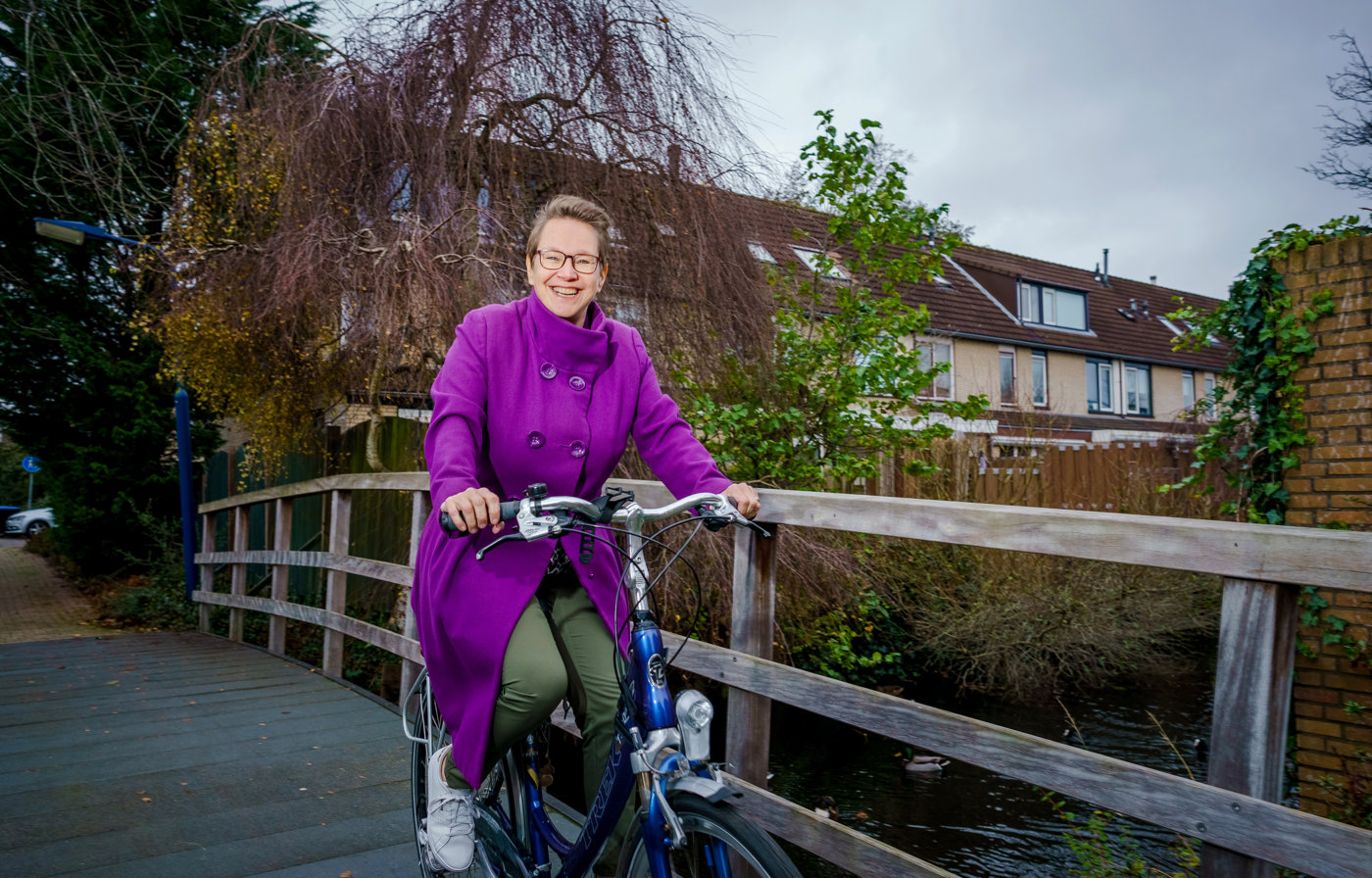How do you deal with work and money for now and for the future? Do you live hand to mouth, or are you deliberately planning your financial future? And are you taking care of your future on your own, or are you part of a pension fund?
Dorotheé Beens (47) likes to save money in a creative way. “It’s much more satisfying to me to find a real treasure at Marktplaats or Vinted, than to just buy whatever is on display at Ikea.”
Dorotheé Beens (47)
Profession: Business Owner
Hours worked weekly: 32 hours on average
Income: Pays herself 1350 euros a month
Savings: 8000 euros
Pension set up? Accrued pension with ABP until age 41
What kind of work do you do?
"I have two companies. With one, Eigen-Wijsz, I work a few hours a week as a coach and training advisor for social services. The focus is on my second company, Verschil in Zaken (Difference in Business). With this company I work with entrepreneurs who want to do business with integrity and sustainability, with a certain mission. I help them communicate their message, among other things."
What is your background?
“I worked as a trainer and purchase courses for a municipality. I taught course and helped develop them. I kept seeing more and more points for improvements in other people’s performance. That is how I got the idea to start offering courses and presentation techniques independently. My employer totally supported me in taking that step. I left on very good terms. That was over six years ago now.”
How much money did you make at that time?
“Working three days a week, I was making more than my husband at 36 hours a week. I think it was something like 1600 euros net, with the collective health care insurance for myself and my husband already deducted.”
And how much do you make now?
“My income fluctuates a lot, especially during Covid times. I immediately noticed I had fewer orders. For a few months, I had no income at all. But lately it’s been steadily going up again. My gross annual turnover last year was close to 26,000 euros. I’m expecting to get to 40,000 euros this year. But not matter what my turnover is, I always pay myself 1350 euros net every month. Including last year, despite the decrease in orders. I had a 20,000-euro buffer, which I was very proud of. But it has now shrunk quite a bit, thanks to Covid.”
Are you happy with your current income?
“When I started my own business in 2015, we chose to rigorously curb all our spending. All the extras fell away. One of my kids didn’t like that too much, to put it mildly. It meant no more ice cream. I bought a museum pass with the money I had earned from some extra jobs, so we could still have some outings. Now I can pay myself more and I can live just fine on what comes in. But I would like it to be just a bit more generous, so that I have a bit more disposable income. My father-in-law has two warehouses, and my husband and I want to take over one of them in the future and rent it out. That will bring us maybe 150 to 200 euros a month, not much, but that will then be passive income.”
How many hours do you work?
“On average about 32 hours a week. I keep weekends free and I don’t make any appointments on Wednesdays. That’s when I pick up whatever is left to do from Monday and Tuesday, but I also make sure I take the time to do something fun. I went through a period where all I did was work; I enjoyed it that much. But at some point, that didn’t feel good anymore. Since I’ve been scheduling leisure time for myself, I have been more effective with my time and it’s easier for me to decide what to do and what not to do.”
How do you share costs at home?
“We are in a joint ownership marriage, so everything private goes into one big pile. I am the one who manages the finances. Our salaries go into our joint account. At the beginning of the year, I make budgets for various expenses: mortgage, insurance, groceries, gifts, eating out, vacation, hairdresser, sports, parking, et cetera. Together we determine what we can spend on them and each month I write down what we have actually spent. The plan is better than the execution though, we break the budget quite often.”
How much do you have in savings?
“The buffer I had is mostly gone, but since then I managed to save up some more and I was able to make a 10,000-euro investment for my second company. My business savings account is back up to about 8000 euros.”
Are you good at saving?
“I always try anyway. I always put half of a paid invoice into my savings account. I can then use that to pay sales tax and income tax and I don’t touch what’s left. For our two children’s education, we have been putting aside 20 euros a month for each child since they were born. They didn’t know about it. We first got them to calculate how much it their education would cost and how much they would need every month. They were shocked. That same night, we surprised them with the message that we would be paying for half of their study costs. It was important to me to teach them the value of money. Mission accomplished, because we had a great discussion about it.”
